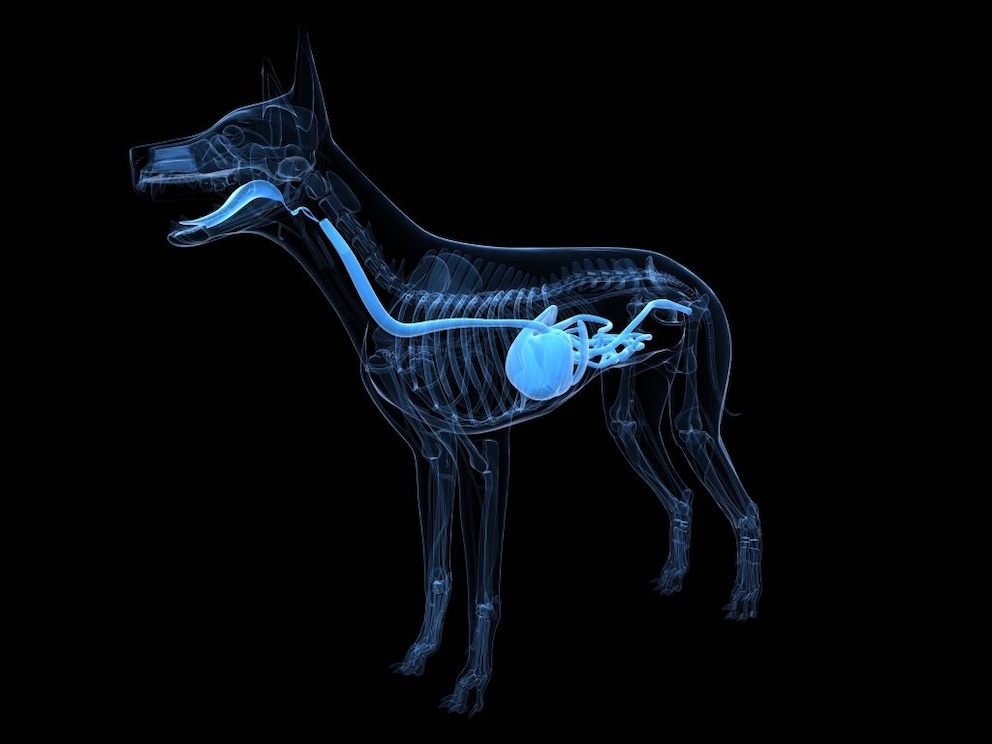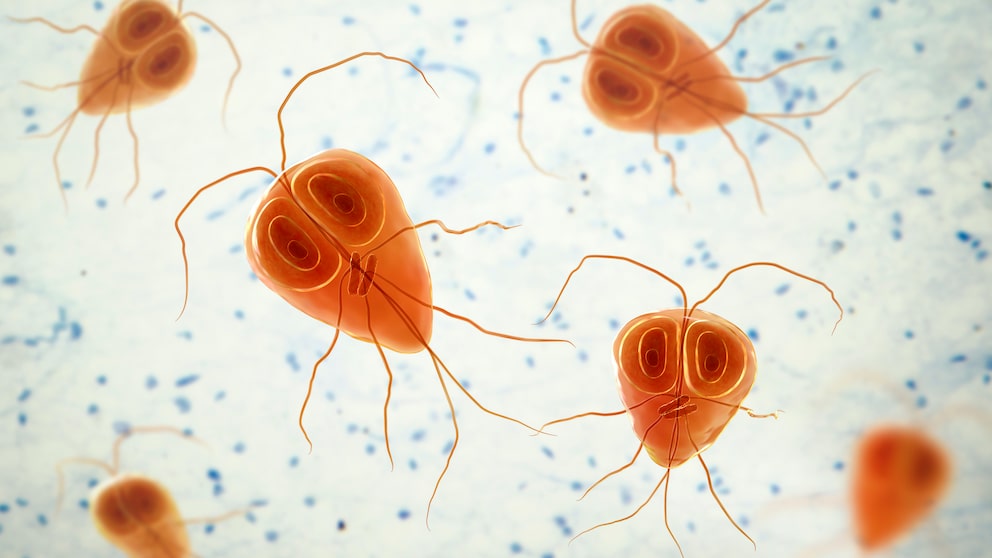August 14, 2024, 6:17 pm | Read time: 4 minutes
Diarrhea in dogs can have various triggers. One conceivable cause, especially in young or older animals, is an infection with Giardia. This is a relatively common, persistent intestinal parasite. What animal lovers need to know about Giardia in dogs.
Giardia occurs in dogs, cats, small animals, and even humans. PETBOOK explains how giardiasis can occur, what symptoms it causes, and how it can be treated.
Overview
Symptoms: How does Giardia manifest itself in dogs?
Not all dogs that carry intestinal parasites show symptoms. A healthy adult can usually keep the protozoa well in check. It is, therefore, usually in puppies, young dogs, senior dogs, or immunocompromised animals that the infection becomes visible. The parasite can cause recurrent, persistent diarrhea. In infected animals, the excrement is mushy to watery and yellowish-green in color. Additionally, the feces have an unpleasantly sweet odor and may sometimes contain traces of blood and mucus.
Additionally, giardiasis can lead to symptoms like vomiting, fever, abdominal pain, and bloating. Affected dogs often tense their stomachs and arch their backs. In puppies, the loss of nutrients from diarrhea can also lead to dehydration, weight loss, and even stunted growth. Their coats then appear dull, and they may develop dandruff. The infection can exacerbate existing intestinal diseases.
What are the causes of the disease?
Even dogs with no symptoms can carry Giardia and infect other animals unnoticed. They excrete the permanent form of the parasites, known as cysts, in their feces. Other dogs become infected by ingesting contaminated water, food, soil, or feces. In the intestine, the cysts develop into trophozoites, i.e., the reproductive form of Giardia.
Wherever many dogs come together, there is an increased risk of infection. For example, infection can occur in animal shelters, boarding kennels, dog daycare centers, and dog schools. In puppies, it is usually the mother who passes on the parasites—for example, when licking the coat.
How is Giardia diagnosed in dogs?
If Giardia is suspected, the dog should definitely be taken to a vet. Other factors can also cause symptoms such as diarrhea, abdominal pain, and fever. A fecal examination, in which the parasite is clearly detected, will provide clarity. Therefore, you should take fecal samples to the vet, preferably for several days. The excrements are then examined microscopically. There is also the possibility of a rapid test.
What is the treatment for Giardia in dogs?
There are various parasiticides against Giardia that are administered by the vet, such as fenbendazole and metronidazole. After about a week, the success of the treatment is checked at a follow-up appointment. Other dogs or cats living in the household might also require treatment to prevent re-infection. In addition, dog baskets, blankets, and toys should be cleaned hot with a steam jet to kill any remaining cysts on the surfaces. If the dog often travels in the car, the interior should be thoroughly cleaned.
A healthy adult dog that has tested positive for Giardia does not necessarily need to be treated. Usually, its immune system is robust enough to manage the intestinal parasite. Only if there is a risk of transmission to young, old, or chronically ill dogs should treatment be carried out in consultation with the vet.

How dangerous is Giardia in dogs?
A Giardia infection is generally only dangerous for young dogs that are still growing. Sick or weakened animals can also suffer from the diarrhea caused by the intestinal parasites.
Can humans contract Giardia from dogs?
Transmission of Giardia to humans is theoretically possible. However, this protozoa has different types, and not all infect humans. In humans, an infection typically presents with gastrointestinal issues, most commonly affecting children or those with weakened immune systems.

Feline zoonoses: Cats can transmit these diseases to humans

Does your dog’s bottom slide across the floor? This is what’s behind it

My Dog Has Fleas! What Can I Do?
Sources
- Veterinary medicine portal, “Giardia in dogs” (accessed on 07/27/.2022)
- Vier Pfoten, ” Giardia: Danger for animals and humans” (accessed on 07/27/2022)
- Anicura, ” Giardia in dogs ” (accessed on 07/27/2022)

